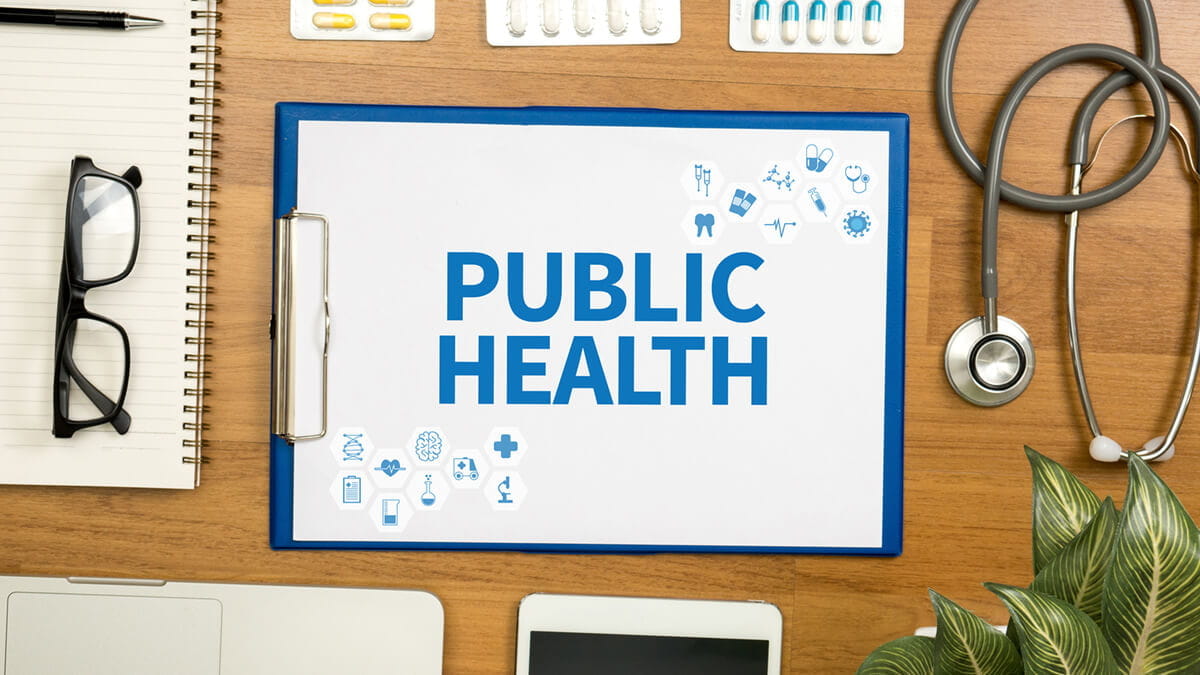Nurses are the most trusted professionals in the United States.1 But how many Americans fully understand what nurses do—and in how many fields nurses work?
Most people would likely be surprised by how many different kinds of jobs nurses hold. There are nurse practitioners running their own primary care clinics, nurse researchers uncovering new treatments, nurse educators teaching about health in schools and communities, nurse leaders serving as CEOs and on corporate boards, and nurse informaticists analyzing health data. Then, there are public health nurses.
Among all the different roles nurses take on, public health nursing is one of the most unique, as public health combines a number of disciplines. Successful public health professionals have in an-depth understanding of disease and wellness and are proficient in working with communities and changing or improving systems. Nurses, with their medical training, are a vital part of our public health system; but to succeed in a public health career, you have to gain skills and knowledge beyond what you learned when becoming an RN.
One way to gain the skills you need is to enroll in a Master of Science in Nursing (MSN) program. In an MSN program with a Public Health Nursing specialization, you’ll undertake an in-depth study of public health, examining important texts and resources. For example, in Walden University’s master’s in nursing program, you can take the course Role of the Nurse—Global and Public Health and study Marcia Stanhope’s Public Health Nursing: Population-Centered Health Care in the Community.
Among the many topics Stanhope covers are the eight tenets of public health nursing. These eight tenets provide an excellent overview of the ways public health nursing differs from other nursing specialties. The tenets are:
- Population-based assessment, policy development, and assurance processes are systematic and comprehensive.
- All processes must include partnering with representatives of the people.
- Primary prevention is given priority.
- Intervention strategies are selected to create healthy environmental, social, and economic conditions in which people can thrive.
- Public health nursing practice includes an obligation to reach out to all who might benefit from intervention or service.
- The dominant concern and obligation is for the greater good of all the people or the population as a whole.
- Stewardship and allocation of available resources supports the maximum population health benefit gain.
- The health of the people is most effectively promoted and protected through collaboration with members of other professions and organizations.
Being a public health nurse can be quite rewarding. And you can become one if you earn an MSN degree with a Public Health Nursing specialization—a step that’s more convenient to take than you might think.
Thanks to online learning, you can enroll in nursing school without moving or even altering your daily work schedule. That’s because online MSN programs give you the freedom to complete your courses from home or anywhere else you have internet access. In addition, when you earn a master’s in nursing online, you can choose when in the day you attend class. That gives you the ability to earn a master’s degree in nursing while continuing to work full time.
Of all nursing careers, public health nursing is one of the most unique. With the advantages of online education, you can go from RN to MSN and make public health nursing your career.
Walden University is an accredited institution offering an Master of Science in Nursing program with a Public Health Nursing specialization online. Expand your career options and earn your degree in a convenient, flexible format that fits your busy life.
1Source: https://news.gallup.com/poll/245597/nurses-again-outpace-professions-honesty-ethics.aspx
Walden University is accredited by The Higher Learning Commission, www.hlcommission.org.




